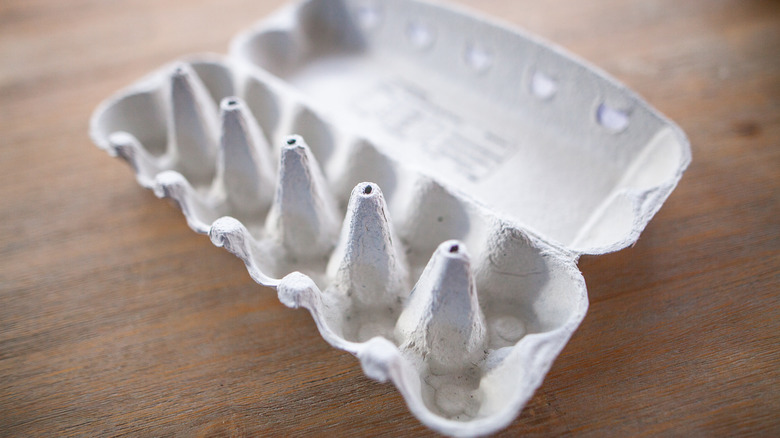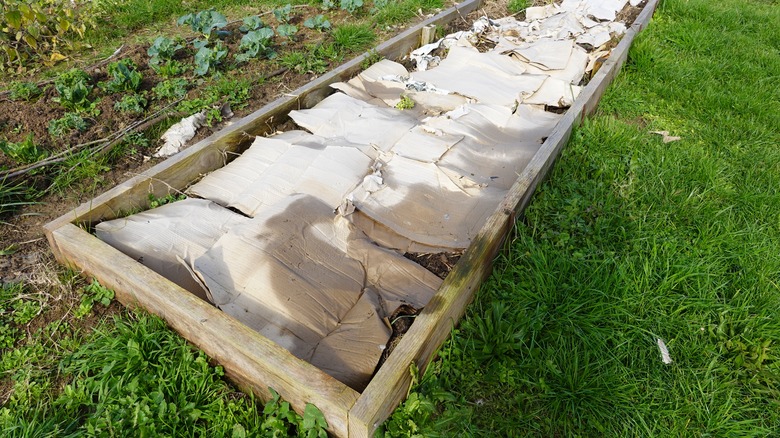How Do People Use Egg Cartons To Suppress Weeds And Does It Actually Work?
It may not come as a surprise that homeowners are searching for ways to make their gardens more sustainable by coming up with DIY weed barrier alternatives. Maintaining and controlling weeds can be daunting, as it's time-consuming and may also be costly. While it might sound like a quirky solution, egg cartons could potentially simplify this gardening task. To use them for this purpose, you'd have to flatten them out and place them beneath the soil before planting. This would create a biodegradable layer that blocks sunlight, preventing weed germination. But is this a good idea?
Because cardboard in general can be beneficial for weed management, cardboard egg cartons may also be effective. However, they aren't as practical for large areas due to their small size and extra flattening step. While it's agreed that cardboard sheets can be effective for weed management, unless you're working in a small space and have no other cardboard options on-hand, using egg cartons to suppress weed growth may have more cons than pros.
Cardboard in general is a popular eco-savvy option and is often recommended as a practical alternative for controlling weeds. When laid down in a garden bed, cardboard blocks sunlight, which helps to prevent weeds from germinating. It also breaks down over time, enriching the soil with organic matter. Using cardboard is an effective, cost-free method for gardeners looking to control weeds without harmful chemicals. However, cardboard — whether in sheet or egg carton form — also comes with some downsides.
Downsides of using egg cartons to suppress weeds
If you're considering using egg cartons to suppress weeds, you must consider the downsides of using any type of cardboard as a weed barrier. While many eco-conscious gardeners recommend cardboard for different uses, this trick may yield varied results depending on factors including your climate and weed type. Egg cartons and other types of cardboard are also biodegradable and decompose into organic matter, making them a temporary solution. The practicality of using egg cartons specifically in larger gardens is also limited due to their small size, as they require a significant number of cartons to cover even modest areas. Additionally, flattening them adds extra time compared to using larger sheets of cardboard. It's also essential to be cautious when using cardboard in gardening and avoid using cartons with coatings or inks that could introduce unwanted chemicals into your garden.
Though their weed control benefits may be modest, there are other ways to use egg cartons in your garden. They're an excellent choice for composting and seed starting. Sustainable gardeners often throw broken-up pieces of cardboard egg cartons into their compost pile, where they add more carbon. Many people also use them for starting seedlings; they can be filled with soil and seeds and left in a sunny spot. Additionally, once the seedlings are established, gardeners can transplant the egg carton cells directly into the soil, where the carton will decompose, enriching the soil as it breaks down. For gardeners looking to experiment with eco-friendly techniques, egg cartons are a versatile and accessible choice, though they may be best suited for smaller projects over large-scale weed management.

